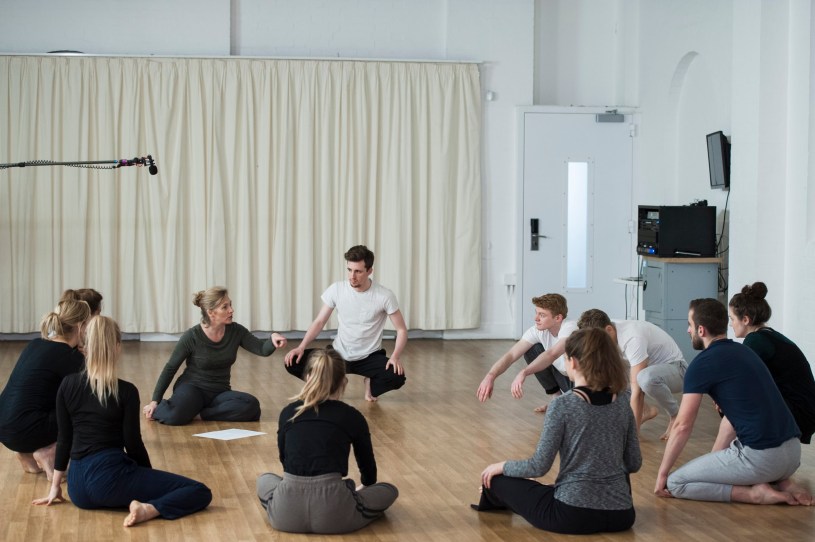Ita O’Brien at a typical workshop.
Staging workshops and seminars on “best practice” approaches to intimacy on screen and stage, Ita O’Brien is finding there has been significant progress in the #MeToo era – but much needs to be done.
“There is a lot of good practice out there already and there are lots of directors and productions that have done this well,” says the British intimacy coordinator, who was brought to Australia by the Equity Foundation.
“But there has not been an understood and received process across the board,” says O’Brien, who this year has consulted on shows commissioned by the BBC, HBO, Netflix and Amazon Prime.
In Australia she is conducting 3-hour seminars and 90-minute ‘in conversation’ sessions followed by workshops for actors and directors and a 1-day course for intimacy coordinators.
At each workshop she invites attendees to reveal whether they have had issues in the workplace. “Most people invariably have had a situation that has been compromising or really unpleasant,” she says.
She pioneered the introduction of Intimacy on Set guidelines in the UK, which set the parameters for nudity, kissing, touching and simulated sex scenes.
She hopes these will be incorporated in the code of conduct covering sexual harassment implemented by Screen Australia in April for all agency-funded productions and an industry-wide policy from Screen Producers Australia and Media Entertainment and Arts Alliance relating to workplace bullying, discrimination and harassment.
“Actors come in for a particular job and feel if they complain or are considered to be trouble-making in any way that they are so dispensable they will be told, ‘You’re out, we’ll get somebody else,'” she says. “People felt they did not have a leg to stand on and would never be able to say the word ‘no.’
“With the guidelines I am calling for an open and adult conversation about the intimate content right from the get-go. So when someone is offered a role the director has already considered the intimate scenes and can have a conversation with the actor about the degree of nudity or sensuality that they are looking for.
“The actor can say ‘that’s great, I’m happy with that’ or no if it is too challenging. So the actor knows they won’t have to do anything which is not right for them. The guidelines are not censorship, they are putting in place a clear structure allowing for agreement and consent which allows the actor to be perfectly safe and to be artistically vulnerable, while giving [the production] far better sex scenes.”
The guidelines include discussing with the actor and/or their agent all scenes involving nudity, intimacy, or simulated sex; always having a third-party present; agreeing on areas of physical touching; and establishing boundaries including a strategy to halt the action where necessary, in rehearsals and filming on set, such as ‘time out.’
O’Brien welcomes the paradigm shift in attitudes since the 1970s, when bottom-pinching and a ‘slap and tickle’ were common in offices and workplaces, and revelations about the sexual misconduct of people like Harvey Weinstein and Jimmy Savile.
“I do feel for the older generation because the goalposts have changed and what was once acceptable or tolerated has been called out,” she says. “Now there is a line in the sand.”
Here are the full guidelines.


